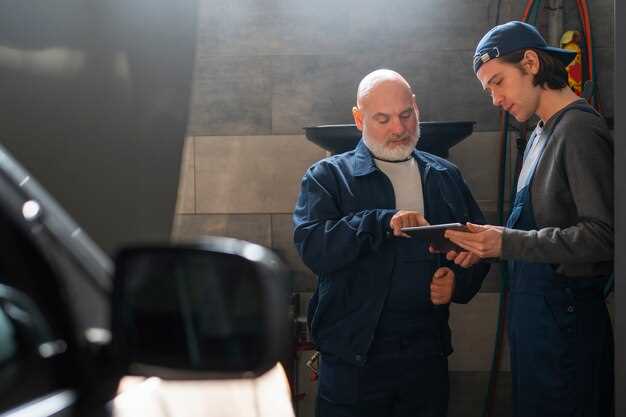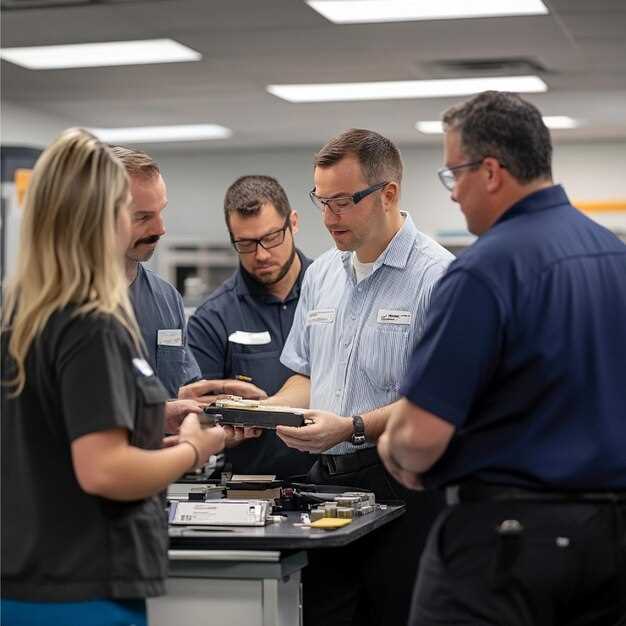Interviews with Top VW Motorsport Engineers

In the competitive world of motorsport, the prowess of race cars is often attributed to their breathtaking speed and agility. However, behind the scenes, a team of dedicated engineers plays a pivotal role in shaping these machines into champions. These professionals work tirelessly, applying their expertise and innovation to optimize performance, design, and technology that define the essence of Volkswagen Motorsport.
Understanding the engineering marvels that propel VW’s racing success requires delving into the minds of those who create them. The insights from these leading engineers reveal the complexities of vehicle dynamics, aerodynamics, and powertrain engineering that drive the team forward. Their collaborative efforts ensure every component is meticulously crafted, tested, and refined to achieve peak performance on the track.
This article will explore the key contributions and thought processes of VW Motorsport’s engineers, highlighting the strategies they employ to stay at the forefront of the racing industry. Join us as we uncover the innovations, challenges, and triumphs that characterize the engineering efforts behind VW’s remarkable racing legacy.
Analyzing Data: How Engineers Use Telemetry for Performance Improvements

Telemetry plays a crucial role in modern motorsport, enabling VW engineers to gather real-time data from vehicles during races and test sessions. By monitoring key performance indicators such as speed, acceleration, tire temperature, and engine RPM, engineers can identify areas for improvement and make informed decisions on vehicle setup.
The data collected through telemetry is not merely numbers; it reveals insights into how the car behaves under various conditions. VW engineers analyze this data to understand the relationship between driver inputs and vehicle performance. This understanding allows them to fine-tune parameters like suspension settings and aerodynamic configurations.
Moreover, telemetry data helps engineers assess the impact of different tire compounds and fuel mixtures on performance. By comparing data from multiple laps, they can pinpoint optimal strategies for pit stops and tire changes, ensuring that the vehicle maintains peak performance throughout the race.
Behind every successful performance enhancement lies the ability to interpret telemetry. VW engineers utilize sophisticated software tools to visualize and analyze complex datasets, making it easier to communicate findings with drivers and the entire team. This collaboration ensures that decisions made are based on solid evidence rather than guesswork.
In conclusion, telemetry is an invaluable asset for VW engineers in their quest for performance improvements. The ability to capture, analyze, and act on data is a fundamental component of their strategy, ultimately driving success on the racetrack.
Engine Tuning Strategies: Balancing Power and Reliability in Race Conditions

In the high-octane world of motorsport, engine tuning is a critical area where engineers strive to achieve the perfect balance between power and reliability. Behind the scenes, advanced strategies are employed to maximize engine performance while minimizing the risk of failure during intense race conditions.
One of the primary strategies involves optimizing the air-fuel mixture, which directly influences power output. Engineers assess various parameters, such as fuel types and ignition timing, to ensure that the engine generates maximum horsepower without compromising its integrity. This meticulous calibration helps in preventing engine knock and overheating, two common issues that can derail a race effort.
Another key consideration is the choice of engine components. Engineers often select high-performance parts that can withstand the stress of high RPMs and extreme temperatures. Forged pistons, lightweight connecting rods, and performance camshafts are just a few examples of modifications that enhance power delivery while maintaining structural reliability.
Data analytics play a significant role in fine-tuning engines. Engineers utilize telemetry data collected during practice runs to identify inefficiencies or potential failure points. This real-time feedback allows teams to make informed adjustments, balancing the engine’s aggressiveness with its durability as they prepare for race day.
Cooling systems are also critical in the tuning process. Engineers optimize radiator designs and fluid dynamics to ensure that engines maintain optimal operating temperatures, even under the most demanding conditions. Effective cooling prevents overheating and prolongs engine life, ensuring that the driver can race to their fullest potential without mechanical worries.
Finally, rigorous testing is a non-negotiable part of engine tuning. Simulation and real-world trials help engineers understand how their tuning choices perform under race conditions. By iterating through different strategies and learning from each race, engineers continually refine their approach, aiming for that elusive combination of power and reliability.
In summary, the art of engine tuning in motorsport is a complex interplay of science and engineering. The insights gleaned from the experiences of leading VW Motorsport engineers reveal that success on the track hinges on meticulous planning, innovative solutions, and a deep understanding of engine dynamics.
Team Dynamics: Collaboration Between Engineers and Drivers for Optimal Results
In the high-stakes world of VW Motorsport, the synergy between engineers and drivers is crucial for achieving optimal performance on the track. Behind the scenes, a well-coordinated team operates to translate technical expertise into competitive advantages. Engineers focus on data analysis, vehicle dynamics, and real-time adjustments, while drivers provide valuable feedback on handling and performance characteristics.
The collaboration starts during the design phase, where engineers develop car specifications based on driver preferences and racing strategies. Frequent communication ensures that the drivers’ insights are considered, allowing for tailored setups that enhance performance. This relationship continues throughout race weekends, with engineers and drivers meeting daily to discuss track conditions, tire strategies, and car behavior.
During races, the dynamic shifts as engineers monitor telemetry data in real-time, making adjustments based on driver performance. This live interaction allows for quick decisions that can significantly impact race outcomes. The trust established between engineers and drivers is fundamental; it empowers drivers to push their limits while relying on the technical support behind them.
Post-race debriefs are another critical aspect of this collaboration. Engineers analyze data collected from the race alongside driver feedback to identify areas for improvement. This iterative process not only sharpens the team’s approach for future races but also fosters an environment of continuous learning and adaptation, essential in the competitive landscape of motorsport.
Ultimately, the synergy between VW’s engineers and drivers exemplifies how effective teamwork can lead to remarkable achievements on the racetrack. By effectively combining technical knowledge with driving skill, VW Motorsport consistently strives for excellence and success.



